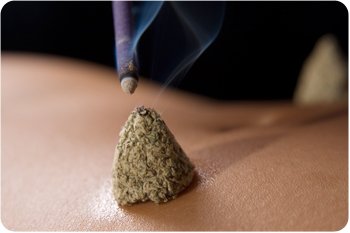
Acupuncture concentrates on improving overall wellbeing by treating the root cause of an illness as well as relieving symptoms. British Acupuncture Council
The process uses subtle diagnostic techniques that have been developed and refined over thousands of years. The focus is on the individual, not their illness, and all symptoms are seen in relation to each other. By inserting ultra-fine, sterile needles into specific acupuncture points, a traditional acupuncturist seeks to re-establish the free flow of qi to restore balance and trigger the body’s natural healing response.
Acupuncture is a holistic treatment. Patients often find that numerous problems and health concerns are rectified at the same time. The World Health Organisation published a review of controlled trials using acupuncture and concluded that it was effective for the treatment of many conditions, and there was evidence to suggest it may be effective for several dozen more.
Acupuncture works
Acupuncture originated in China and other Far Eastern cultures, where it continues to play a significant role in mainstream healthcare, both as a stand-alone therapy and in combination with conventional Western medicine. Acupuncture is now widely used and accepted worldwide. In the UK, an increasing number of people are discovering the benefits of acupuncture. Members of the British Acupuncture Council (BAcC) practice acupuncture based on Chinese medicine principles that have been developed, researched, and refined for over 2,000 years. The BAcC currently registers over 3,000 qualified practitioners.
Who benefits from acupuncture?
Many people seek acupuncture to alleviate specific symptoms or to relieve particular pains, such as osteoarthritis of the knee. Some individuals choose acupuncture because they feel generally unwell but lack a specific diagnosis. Others opt for acupuncture simply to enhance their overall sense of well-being. Acupuncture is considered suitable for all ages, including babies and children, and it can be effectively used alongside conventional medicine.

What happens when I go for treatment?
The acupuncturist will use various diagnostic methods to obtain a comprehensive understanding of your health and lifestyle. This includes taking a detailed medical history, examining your pulses, and observing your tongue. Based on this information, the acupuncturist will make a diagnosis and develop a personalized treatment plan for you.
Acupuncture points are selected based on your symptoms and underlying energy pattern. The sterile needles used are single-use and come in sealed packs. They should be opened in front of you and disposed of safely after each treatment.
If deemed appropriate, your practitioner may refer you to your GP or another healthcare professional.
What does it feel like?
Acupuncture needles are much finer than needles used for injections and blood tests. When the needle is inserted you may feel a tingling sensation or dull ache.
Is it Safe?
The results of two independent surveys published in the British Medical Journal in 2001 (MacPherson et al, White et al, both BMJ September 2001) concluded that the risk of serious adverse reaction to acupuncture is less than 1 in 10,000. The needles used are single-use, sterile, and disposable. Responses to treatment can sometimes include tiredness or mild dizziness, and very occasionally minor bruising may occur. However, all such reactions are short-lived.
Should my doctor Know?
If you have been prescribed medication, we recommend informing your doctor about your plan to have acupuncture. It is important not to stop taking your medication without medical guidance. You should always inform your acupuncturist about any medication and supplements you are taking, as this may affect your response to the acupuncture treatment. BAcC acupuncturists are trained to recognize potentially serious underlying health conditions and may refer you to your GP if they consider it appropriate.
How many sessions will I need?
Frequency and number of sessions depend on your individual condition. Your acupuncturist will normally ask to see you once or twice a week at first. Some change is usually felt within five or six treatments, although occasionally just one or two treatments are sufficient. Some people choose to have regular acupuncture to maintain good health.
What can it do for me?
Some individuals seek acupuncture to address specific symptoms or conditions, while others choose it as a means to maintain good health, as a preventive measure, or to enhance their overall well-being. Traditional acupuncture aims to treat the whole person rather than isolated symptoms, making it effective for a wide range of conditions. It’s important to note that acupuncturists treat the person, not just the specific condition, so each patient’s treatment plan will be unique. However, you can always ask your practitioner about the experiences of other patients to get an idea of what to expect. Many people return to acupuncture repeatedly because they find it highly beneficial and relaxing.
In 2009, the National Institute for Health and Clinical Excellence recommended that acupuncture should be made available on the NHS as a cost-effective short-term treatment for managing early, persistent non-specific lower back pain.
